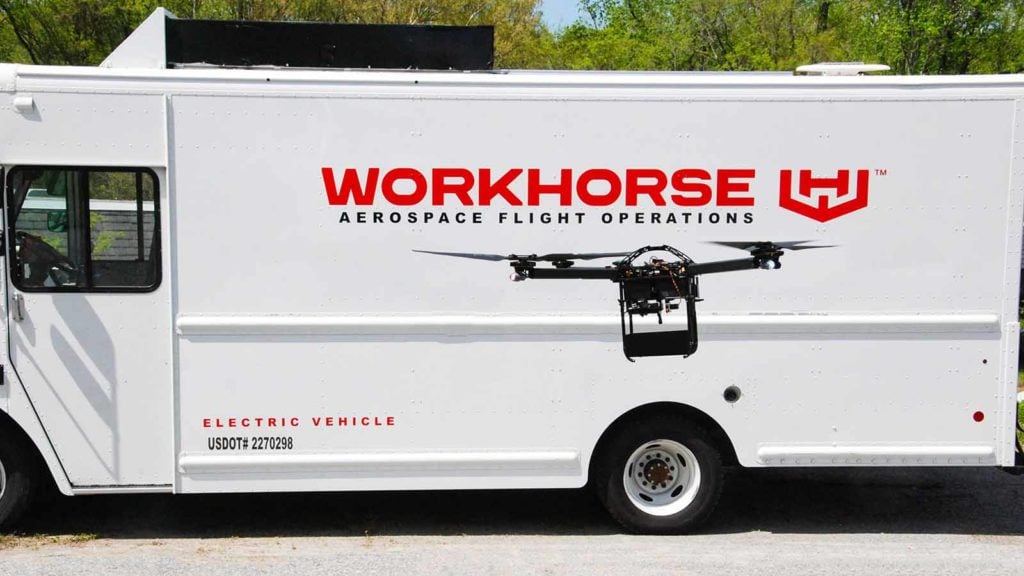With Workhorse (NASDAQ:WKHS) facing multiple new risks on top of numerous red flags, I continue to recommend that investors sell WKHS stock.

A new report by a short-selling firm includes damaging information about Workhorse. Moreover, the shares are likely to be hurt in the short- and medium-term by the delay of an important U.S. Post Office contract.
Finally, despite all of these issues, the valuation remains very high.
A Damaging Report
On Oct. 8, short-seller Fuzzy Panda Research issued a report in which it stated that it believes that Workhorse has no chance of winning a huge deal to provide USPS with new vehicles. Workhorse bid on the $6 billion deal along with its partner, VT Hackney.
According to Fuzzy Panda, which is shorting WKHS stock, VT Hackney pulled out of the competition for the contract last year. That’s because VT Hackney decided that any contract that the pair obtained from USPS “would not be material,” Fuzzy Panda reported.
And furthering my previously expressed worries about Workhouse’s technical capabilities, the report also stated that the company’s vehicles have malfunctioned on multiple occasions.
For example, the parking brake on a prototype vehicle that it made for the USPS failed to work, while the company’s “EV prototype ran out of range and got stranded… [its] suspension broke when hitting railroad tracks; {and it had} chassis performance problems,” the firm stated. Fuzzy Panda does not believe that Workhorse has the ability to meet the Post Office’s requirements.
In a past column, I noted that UPS (NYSE:UPS) had only acquired 350 of the 1,000 trucks that it had ordered from Workhorse in 2018. Further, I wrote that the owners of WKHS stock “should be worried about that issue and concerned by the fact that the company does not appear interested in ordering anymore vehicles from Workhorse at this point.”
Fuzzy Panda contends that UPS has “already moved on from Workhorse,” and is primarily relying on Workhorse’s competitor, Arrival, to supply the rest of the EVs it was seeking.
Finally, the short seller quotes unnamed Workhorse employees as saying that the automaker is not working on filling any purchase orders.
More Issues With the USPS Deal
On Oct. 13, research firm Roth Capital reported that USPS decided not to award its contract for about two-and-a-half months. The Post Office was originally supposed to declare the winner or winners of the bidding process that day.
The delay is likely to keep a lid on Workhorse’s shares for the next six weeks or so. Additionally, Workhorse bulls had reportedly theorized that the Trump administration would give the company a contract in order to help the swing state of Ohio where Workhorse’s partner, Lordstown, has a plant. Now that the contract will not be awarded until after the election, that theory is obviously no longer valid.
Valuation and the Bottom Line on WKHS Stock
Although a ton of red flags about Workhorse has arisen, WKHS stock still has a fairly high market capitalization of $2.425 billion, and the company is trading at a price-sales ratio of over 10,000 times.
So Workhorse’s technical abilities are questionable, UPS seems to be dissatisfied with its vehicles, there’s a good chance that Workhorse will not win a USPS contract, and it may not be able to make a profit off the contract if it does win a deal. Given all these points, along with the sky-high valuation of WKHS stock, it’s clear that the stock’s risk-reward ratio is quite unfavorable.
On the date of publication, Larry Ramer did not have (either directly or indirectly) any positions in the securities mentioned in this article.
Larry has conducted research and written articles on U.S. stocks for 13 years. He has been employed by The Fly and Israel’s largest business newspaper, Globes. Among his highly successful contrarian picks have been solar stocks, Roku, and Snap. You can reach him on StockTwits at @larryramer. Larry began writing columns for InvestorPlace in 2015.
